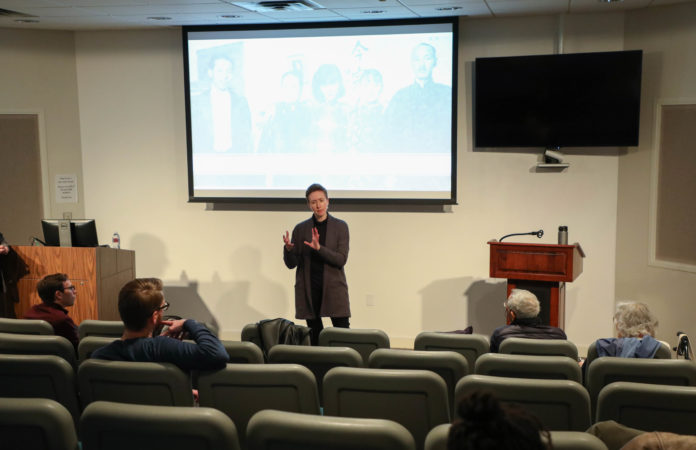
By Sarah Pinkerton | Staff Writer
Dr. Daniel Barish, assistant professor of history at Baylor, and Dr. Kate Merkel-Hess of Penn State University spoke in a series of lectures, discussing the role of the Western world in China and the role of women on Chinese political life during the 19th century.
The event, hosted by the Institute for Studies of Religion at Baylor, was entitled “Building a New China: Between Empire and Communism”, and was presented Thursday in the Armstrong Browning Library.
Barish first spoke about “English and Evangelism at the Late Qing Court” and discussed the way this has impacted China.
He discussed the prevalence of young emperors in China during the 19th century and the role that missionaries and diplomats played in promoting a Western lifestyle. Barish said they desired to have influence over the emperor’s education with English and Christian readings.
“There are lots of people around the country who say, ‘Wait a second, there’s this kid at the center who’s a blank slate, we can convert him to our cause,’ and in my book, those causes are Confucian classicism, Western learning and the Manchu way,” Barish said. Those are the groups of officials who are engaged in this fight.”
Barish also described how this western presence has impacted China throughout its history. He said he emphasized the Westerners who came in the 19th century used these past ways as a model for their own influence.
“Oftentimes we speak or we act in ways we think we know how people will hear,” Barish said. “But we don’t spend enough time thinking about their history, cultural context, lived experience. That really shapes how they hear what we say.”
Merkel-Hess’ section of the lecture, titled “Rebellious Devotion: Love and Patriotism in the Life of Traitorous General Zhang Xueliang,” focused on the way women impacted political life during that time, specifically the life of Zhang Xueliang, ruler of Northeastern China during the 19th century.
“I think the story of Zhang Xueliang and the women around him exemplifies the way that political reunification of the country became mapped on top of familial and romantic devotion, and loyalty to the state and the ways that all of these things were interwoven with allegiance to the family,” Merkel-Hess said.
Women had a strong impact on these warlords, Merkel-Hess said. Zhao Yidi’s relation to Xueliang as his mistress, then wife, and said Yidi acted as a companion to him during five years of house arrest.
Merkel-Hess said Yidi also acted as a catalyst for transforming his image from playboy to noble.
Merkel-Hess continued to say Soong Mei-ling, first lady of the Republic of China, and her relationship to Xueliang as a cross-gender friendship in addition to their complicated familial and political relations.
Merkel-Hess said through their relationship, Soong helped him recover from his opium addiction and helped convert him to Christianity.
“Participation in the family, friendship, love, marriage, brother and sisterhood, those quite literally domesticated those who were engaged in them,” Merkel-Hess said. “In terms of their image-making, in terms of how they were presented, made them less of a threat.”
Barish and Merkel-Hess have both received many awards and grants for their studies and have released several books on the topic of Chinese history.





